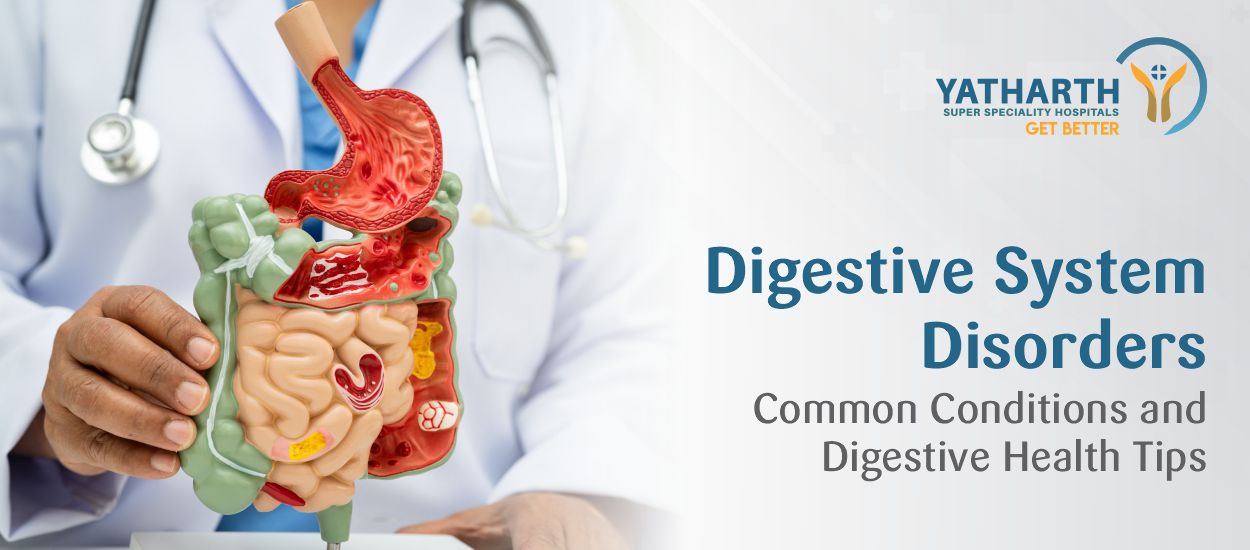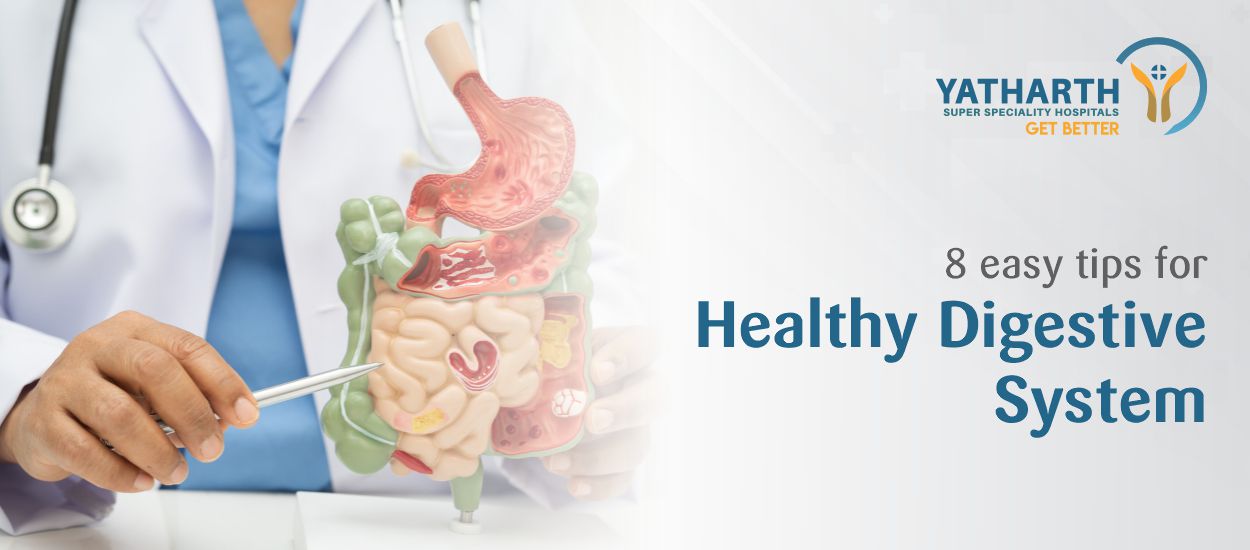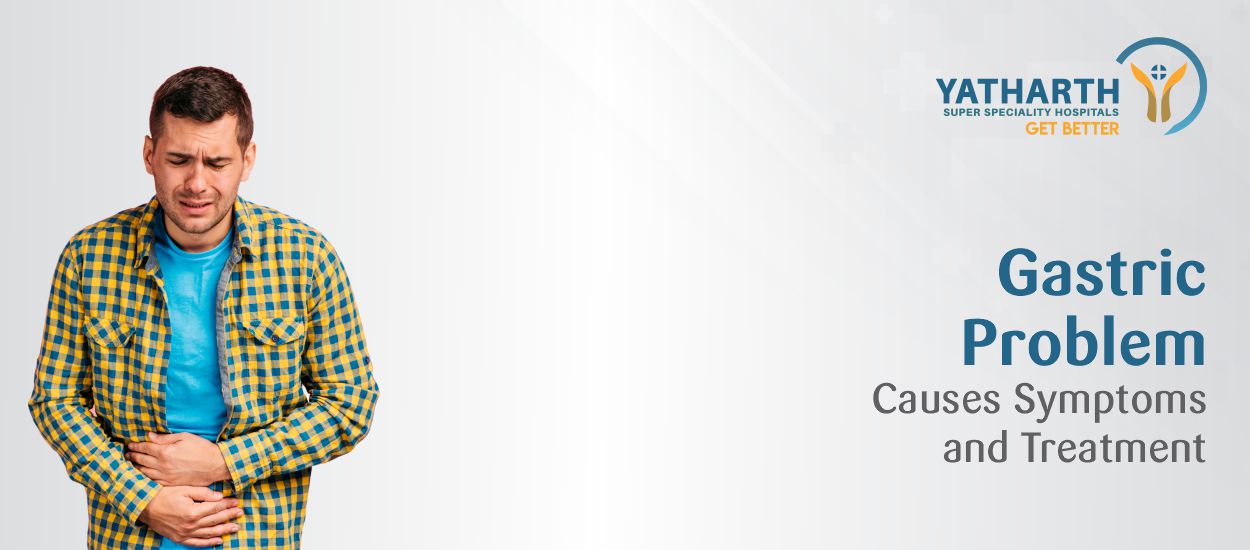The digestive system plays a crucial role in breaking down food, absorbing nutrients, and eliminating waste. However, various digestive system disorders can disrupt this process, leading to discomfort and health complications. In this article, we will explore common digestive system disorders, including Gastroesophageal Reflux Disease (GERD), Inflammatory Bowel Disease (IBD), and Irritable Bowel Syndrome (IBS). We will discuss their symptoms, causes, and management strategies and provide essential tips for promoting a healthy gut and preventing common digestive disorders. Whether you seek information or seek ways to improve your digestive health, this blog will be a valuable resource.
Understanding Digestive System Disorders: An Overview of Common Conditions
Digestive system disorders encompass a range of conditions that affect the organs involved in digestion, such as the oesophagus, stomach, intestines, and colon. These disorders can lead to symptoms like abdominal pain, bloating, indigestion, diarrhoea, and constipation. Common digestive system disorders include GERD, IBS, and IBD. Understanding these conditions is the first step towards effectively managing them and improving digestive health.
Gastroesophageal Reflux Disease (GERD) and Acid Reflux: Symptoms, Causes, and Management
GERD is a chronic digestive disorder characterised by stomach acid reflux into the oesophagus, causing symptoms like heartburn, regurgitation, and chest pain. It is essential to understand the triggers and risk factors associated with GERD, such as certain foods, obesity, and smoking. Management strategies include lifestyle modifications like dietary changes, weight management, elevation of the head during sleep, and, in some cases, medications prescribed by a gastroenterologist.
Irritable Bowel Syndrome (IBS): Triggers, Symptoms, and Lifestyle Strategies
IBS is a common functional digestive disorder that affects the large intestine. Symptoms like abdominal pain, bloating, changes in bowel habits, and discomfort characterise it. Identifying triggers, such as certain foods, stress, and hormonal changes, is crucial in managing IBS. Lifestyle strategies like dietary modifications (such as a low-FODMAP diet), stress management techniques, regular exercise, and adequate hydration can help alleviate symptoms and improve overall quality of life.
Inflammatory Bowel Disease (IBD): Crohn's Disease and Ulcerative Colitis
IBD refers to chronic inflammatory conditions primarily affecting the digestive tract, including Crohn's disease and ulcerative colitis. These conditions cause inflammation, ulcers, and damage to the intestinal lining, leading to symptoms like abdominal pain, diarrhoea, rectal bleeding, and fatigue. Treatment approaches for IBD may include medications, dietary changes, symptom management, and, in severe cases, surgical interventions. Regular consultation with a gastroenterologist is crucial for effective management and personalised treatment plans.
Digestive Health Tips: Promoting a Healthy Gut and Preventing Digestive Disorders
Having a healthy gut is critical for overall digestive health. Incorporating the following tips can help prevent common digestive disorders and promote optimal gut function:
- Eat a balanced diet rich in fibre, fruits, vegetables, and probiotic-rich foods.
- Stay hydrated and limit your consumption of alcohol and caffeine.
- Manage stress through relaxation techniques like meditation or yoga.
- Exercise regularly to promote healthy digestion.
- Practice mindful eating, chew food thoroughly, and eat smaller, more frequent meals.
- Avoid smoking and limit the intake of processed and fatty foods.
- Maintain a healthy weight through balanced eating and regular physical activity.
- Prioritise sleep and establish a normal sleep routine.
- Seek medical advice for persistent digestive symptoms and follow up with recommended screenings.
Closing Thoughts
Digestive system disorders can significantly impact daily life and overall well-being. Understanding common conditions such as GERD, IBS, and IBD is crucial for effective management and seeking appropriate medical care. By implementing lifestyle modifications, following digestive health tips, and maintaining regular communication with healthcare professionals, individuals can promote a healthy gut, prevent digestive disorders, and enjoy optimal digestive health. If you experience persistent digestive symptoms or concerns, consult a gastroenterologist or specialist to address your needs.
FAQs
1. What are the common symptoms of digestive system disorders?
Common symptoms of digestive system disorders may include abdominal pain, bloating, indigestion, changes in bowel habits (diarrhoea or constipation), and reflux symptoms like heartburn.
2. How are GERD and acid reflux different from occasional heartburn?
GERD and acid reflux are chronic conditions characterised by the recurring backflow of stomach acid into the oesophagus, causing symptoms like heartburn, regurgitation, and chest pain. In contrast, occasional heartburn is a temporary and infrequent discomfort usually caused by dietary choices or lifestyle factors.
3. Are there specific foods that can trigger symptoms of digestive disorders like GERD and IBS?
Trigger foods can vary for each individual, but common culprits that may worsen symptoms of digestive disorders include spicy foods, fatty foods, citrus fruits, caffeine, alcohol, and carbonated beverages.
4. What lifestyle modifications can help manage acid reflux and prevent GERD symptoms?
Lifestyle modifications that can help manage acid reflux and prevent GERD symptoms include avoiding trigger foods, maintaining a healthy weight, practising portion control, elevating the head while sleeping, and refraining from lying down immediately after meals.
5. Can stress and anxiety worsen symptoms of irritable bowel syndrome (IBS)?
Stress and anxiety can indeed worsen irritable bowel syndrome (IBS) symptoms as the gut and brain are closely connected. Managing stress through relaxation exercises, regular physical activity, and seeking support can help alleviate IBS symptoms.
6. Are there any specific diets, such as the low-FODMAP diet, that can help alleviate IBS symptoms?
The low-FODMAP diet is often recommended for individuals with IBS to identify and avoid specific carbohydrates that can trigger symptoms. It involves eliminating high-FODMAP foods for a certain period, followed by systematic reintroduction to identify individual triggers.
7. What are the key differences between Crohn's disease and ulcerative colitis?
Crohn's disease and ulcerative colitis are both types of inflammatory bowel disease (IBD) but affect different parts of the digestive tract. Crohn's disease can involve any part of the gastrointestinal tract, while ulcerative colitis primarily affects the colon and rectum.
8. Can inflammatory bowel disease (IBD) be cured, or is it a lifelong condition?
Currently, there is no known cure for IBD, and it is a chronic condition that requires ongoing management. However, with appropriate treatment and lifestyle adjustments, individuals with IBD can achieve remission and maintain a good quality of life.
9. What medications are commonly prescribed for managing IBD symptoms?
Medications commonly prescribed for managing IBD symptoms may include anti-inflammatory drugs, immunosuppressants, biologic therapies, and symptom-specific medications like anti-diarrheal agents.
10. How important is regular follow-up with a gastroenterologist for individuals with digestive system disorders?
Regular follow-up with a gastroenterologist is crucial for individuals with digestive system disorders to monitor symptoms, assess treatment effectiveness, adjust medications, and address any concerns or new conditions.















